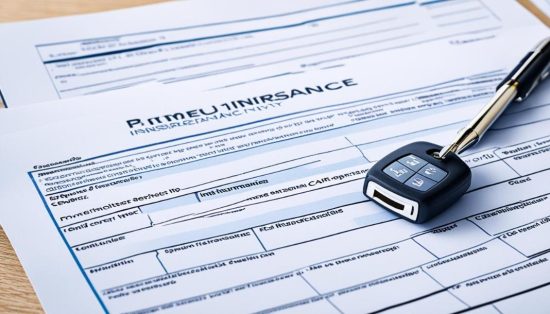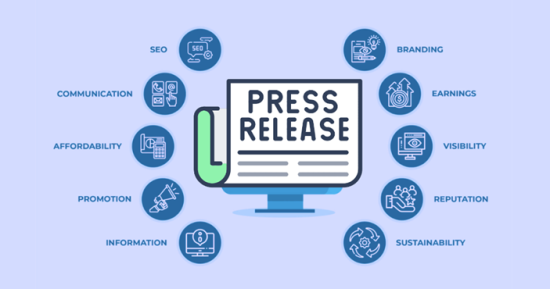
Did you know that many dealerships require proof of car insurance before allowing you to drive a new car off the lot? That’s right, securing car insurance is an essential step when purchasing a vehicle. In fact, all states except Virginia and some remote parts of Alaska require car insurance. So, if you’re planning on buying a car, it’s crucial to understand how to get car insurance before buying a car.
Informing your current insurer in advance ensures a smooth transition with no coverage gaps. Understanding state requirements and exploring different coverage options will help you customize your policy for peace of mind. Let’s get started on how to efficiently secure car insurance for your new ride!
Types Of Car Insurance Coverages
When it comes to car insurance, understanding the different types of coverage options available to you is crucial. Each type of coverage provides specific protection in different situations, ensuring that you and your vehicle are adequately protected on the road.
Here are the main types of car insurance coverages:
Liability Coverage
Liability coverage is mandatory in most states, as it provides financial protection if you cause an accident that results in property damage or bodily injury to others. It helps cover the cost of repairs, medical expenses, and legal fees.
Collision Coverage
Collision coverage is designed to cover the cost of repairing or replacing your vehicle if it is damaged in a collision, regardless of who is at fault. Whether you collide with another vehicle or hit an object such as a tree or fence, collision coverage can help cover the expenses.
Comprehensive Coverage
Comprehensive coverage protects your vehicle against non-collision events such as theft, vandalism, fire, or natural disasters. It also covers damages caused by hitting an animal on the road.
Uninsured/Underinsured Motorist Coverage
Uninsured/underinsured motorist coverage provides protection if you are involved in an accident with a driver who either has no insurance or does not have enough coverage to pay for the damages. This coverage can help cover medical expenses, property damage, and other losses.
Personal Injury Protection (PIP)
Personal injury protection, also known as PIP insurance, is required in no-fault states and provides coverage for medical expenses and lost wages for you and your passengers, regardless of who is at fault in an accident.
Other Coverage Options

In addition to the main types of car insurance coverage, there are other optional coverage options that you can consider based on your needs:
- Roadside assistance: Provides assistance in case of a breakdown or other roadside emergencies.
- Gap insurance: Covers the difference between the actual cash value of your vehicle and the amount you owe on a car loan or lease in the event of a total loss.
- Rental reimbursement: Helps cover the cost of a rental car while your vehicle is being repaired.
- New car replacement coverage: If your brand-new car is totaled within a certain time frame, this coverage provides funds to replace it with a new vehicle of the same make and model.
By understanding the various types of car insurance coverages available, you can make informed decisions to ensure that you have the right level of protection on the road.
Documents Needed For Car Insurance
When applying for car insurance, you will need to gather several documents to complete the process. These documents are necessary to verify your identity, provide details about the vehicle you want to insure, and assess your driving history. Having these documents ready will help streamline the application process and ensure that you meet the requirements set by the insurance provider and the state.
Here are the key documents you will need:
- Personal identification documents: You will need a valid driver’s license or state identification card to prove your identity.
- Vehicle information: You will need to provide the make, model, year, and VIN (vehicle identification number) of the car you want to insure.
- Mileage information: You may be required to provide the current mileage of the vehicle and an estimate of the annual mileage.
- Proof of ownership: If you already own the vehicle, you will need to provide proof of ownership, such as a title or registration certificate. If you are purchasing a new car, you may need to provide proof of purchase.
- Information about your current insurance policy: If you already have car insurance, you may need to provide details about your current policy.
- Driving record information: You may be asked to provide information about any previous accidents or violations on your driving record.
Keep in mind that additional documents may vary depending on the insurance provider and the specific requirements of your state. It’s always a good idea to check with your insurance company or agent to ensure you have all the necessary documentation.
How to get car insurance before buying a car?
When it comes to buying a car, one important aspect that often gets overlooked is getting car insurance before making the purchase. Many people wonder if it’s possible to secure car insurance without owning the vehicle yet. The good news is that it is not only possible but also recommended to obtain car insurance before buying a car.

Confirm your Vehicle to Buy
Before purchasing a car, it’s crucial to confirm the exact vehicle you plan to buy. This includes identifying the make, model, year, and vehicle identification number (VIN). Having this information ready will help insurance companies provide you with accurate quotes and ensure that you get the right coverage for your specific vehicle.
Know the Car Model and Information
Collecting comprehensive information about your desired car model is essential when shopping for car insurance. Insurance rates can vary based on factors like the car’s safety features, theft vulnerability, repair costs, and overall value. Informed knowledge of your car’s specifications will assist you in finding the best coverage options that align with your needs and budget.
Collect Multiple Insurance Quotes
Don’t settle for the first insurance quote you receive. It’s prudent to collect multiple quotes from different insurance providers. By doing so, you can compare the coverage options, rates, and discounts available. This allows you to make an informed decision and choose the insurance company that offers the best coverage at a competitive price.
Submit the Documents
Once you have chosen the insurance company that meets your requirements, the next step is to submit the necessary documents to finalize your insurance policy. These documents typically include your personal identification, vehicle information, proof of ownership, and driving record. Submitting these documents promptly will ensure a smooth and efficient process for obtaining your car insurance.
Remember to notify your insurance company about your new car purchase. This will allow them to update your policy or create a new one tailored to your new vehicle. Additionally, be aware of any additional requirements or coverage options requested by the dealership or lender you are working with.
By following these steps and taking the time to get car insurance before buying a car, you can have peace of mind knowing you are protected from any potential risks and financially safeguarded against unexpected incidents.
FAQs on Car Insurance
What information do I need to provide to get car insurance for a new car?
You’ll need to provide the car’s make, model, year, VIN, and details about your driving history. Additionally, the insurer may ask for your current policy information if you have existing coverage.
Can I transfer my current car insurance to a new car?
Yes, most insurance companies allow you to transfer your existing policy to a new car. Notify your insurer about the new vehicle details to ensure coverage is updated and effective immediately.
How long does it take to get car insurance for a new car?
Getting car insurance for a new car can be done quickly, often within a few hours to a day. Once you provide the necessary information, the insurer can typically process and activate your policy promptly.








